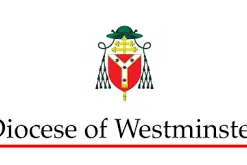Westminster Diocese committed to becoming carbon neutral

Photo: Lawrence Lew OP
Source: CBCEW
The Diocese of Westminster has committed to do its utmost to become carbon neutral by 2030 in its parishes and curial buildings. It has also expressed its commitment to working with schools to encourage them to follow the same path.
As Pope Francis explains in Laudato Si', caring for God's created world and cooperating with the Holy Spirit in this work of creation is everyone's responsibility, not least that of the faithful.
Taking the lead and setting an example for others is an important part of this work. To that end the diocese has been working for a number of years to transition away from reliance on carbon fuels and to implement policies that will promote a greener future.
The comprehensive plan, which currently includes 14 policies and 43 separate project streams, focuses on four pillars:
1. Clean energy sources: Since 2017, a concerted effort has been made to transition towards cleaner sources of electricity and gas supply for parishes and diocesan offices. We have worked proactively with other dioceses to establish Inter Fuel Management (IFM), a Catholic mutual which sources energy from green sources. Together with Churchmarketplace, another Catholic mutual owned by the dioceses of England and Wales, which increases our collective purchasing power, we rely on these partners to help us find solutions that will enable the transition to a carbon neutral future. Currently, 100% of the electricity supply is from green sources, as over 70% of the gas supply comes from the by-product of biological processes, with the remainder being offset. As the bio gas market expands, we expect that 100% of our gas supply will come from green sources.
2. Investment policy: For a number of years, we have been working with other churches to use our collective investment portfolios to engage with energy companies to encourage them along the path of decarbonisation. Our investment portfolio does not include shares in any major coal producers, producers of oil from oil sands or in companies that do not engage fully with disclosure projects. In the past couple of years we have taken the additional decision to divest entirely by the end of 2021 from electrical utility and fossil fuel companies that have not taken any steps to manage their businesses in line with the Paris Accord (that is, to limit temperature rises to well below 2C above pre-industrial times). We are on track to meet this objective.
3. Carbon emissions from energy usage in parishes and diocesan buildings: There are two simple, but difficult, steps that will be taking to reduce carbon emissions: a) reducing consumption, and b) eliminating carbon being burnt. Reducing consumption requires a change in each of us, a conversion, to understand that it is up to each one of us to reduce energy use. Today, more than ever, priests and people are very aware of the need to reduce consumption and are already taking steps. It is our hope to continue to encourage everyone to reduce their consumption.
Eliminating carbon emissions as a by-product of consumption is more challenging. It will require changing heating systems in all properties, including diocesan offices, residential units, presbyteries, churches and other ancillary parish buildings. Some of these will be easier to change than others. With changes in technology, it will be possible to install heating systems that use clean energy, such as ground source heating, in residential properties. Changing heating systems in our churches can be substantially more challenging because of the size and nature of these buildings, and the historical listing of some of them. However, we are committed to helping parishes along this journey, and will be focusing on helping those parishes that have higher energy consumption at present to find the right solution, such as underfloor heating which uses electricity.
4. Generating energy: With technology continuing to evolve, we hope that it will be possible for us to generate energy using the various parish and diocesan properties. Some clean energy generation, such as solar panels, can be difficult because of the nature of church roofs, particularly on listed churches. However, other sources, such as ground source energy and wind energy, may prove viable options. We already have a number of successful examples of energy generating systems in parishes and other diocesan properties. These sources of energy can help us accelerate the move away from carbon sources, and provide a viable alternative to the benefit of our communities.
As part of the culture shift, we are also embedding these pillars in our decision-making processes. This will affect every project we undertake, including building and/or refurbishing properties.
We have already made some strides along the path to a carbon neutral future. It is not an easy process, but this is a calling and a responsibility for us all. Working together with everyone, as well as anticipated technological advances and changes in government policies, will enable us to achieve our goal of becoming carbon neutral by 2030.
LINKS
An accompanying video message from Cardinal Vincent Nichols: https://youtu.be/gQeMiLkspf4
A reflection from Bishop John Sherrington, Auxiliary Bishop of Westminster: https://rcdow.org.uk/news/carbon-neutrality/the-call-to-ecological-conversion/


















